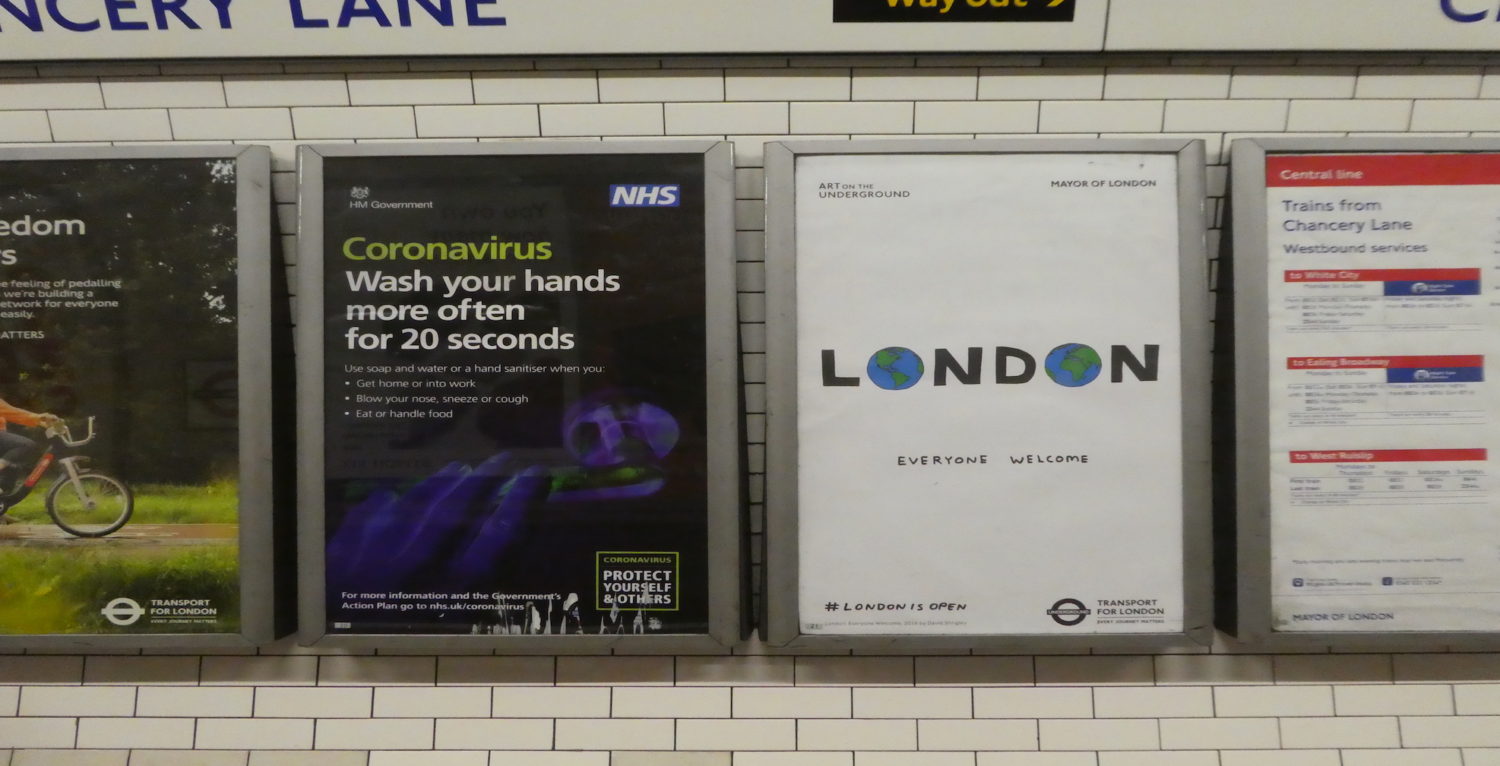Another London is possible
On the day the capital was due to vote for its mayor, it is time to reflect on the city we want after the crisis, writes Rayhan Haque.
Today Londoners were meant to head to the polls for the mayoral election. Instead, we live through our 45th consecutive day of an unprecedented lockdown, as we continue to confront coronavirus.
This is a pandemic that has tragically taken tens of thousands of lives. It has raged across our hospitals and vital frontline services, cruelly killing hundreds. It has shattered our economy and made millions unemployed. It has upended our lives: from how we work and travel to how we socialise. The virus has engulfed the entire world and can infect anyone. No one was born immune.
Consequently, it has been dubbed as the great ‘leveller’. But this is wrong. Data shows you are twice as likely to die from coronavirus in the poorest boroughs of London, compared to the richest. If you are of black African origin, you are three times as likely to perish from the deadly bug than your white peers. And 87 per cent of Covid-19 deaths in London’s hospitals were people aged 60 or above, compared to 1.3 per cent under the age of 40.
Looking beyond mortality, the virus’s impact is anything but equal. In fact, it has inflamed already prevalent poverty, job insecurity, hunger, and precarious living in the capital. Take the world of work. Before Covid-19 struck, London had a higher rate of poverty (28 per cent) than the UK average (22 per cent), with nearly three-quarters of poor adults coming from working households.
If that’s not bad enough, the poorest have also been forced to forgo over half of their income just to keep a roof over their heads. The result: hunger is now rife, with the London Good Work hearing desperate accounts of people being “forced to live on just bread, butter, and water for a year”, and in one instance, an individual resorting to “eating cigarette butts just to survive”.
According to the Independent Food Aid Network, we now have 190 food banks operating in London, which is almost equal to the number of McDonald’s restaurants. This was life in the capital before the virus arrived. But it doesn’t have to be this way. We can build a new future, which is more equal, secure, and enriched. Another London is possible. And that journey begins by creating a new world of work.
The pandemic is a game changer in how we perceive different jobs and consider their ‘true value’. Very evidently, we can now see the roles that are genuinely essential to the basic functioning of our economy and society. The crisis has revealed who the real key workers outside our wonderful health service are – those working in the transport network, in supermarkets, or as cleaners and refuse collectors.
Even the Daily Mail has ditched its derogatory rhetoric towards low-paid immigrant workers, with a recent frontpage story about a crisis in farm pickers billed as “Romanians to the Rescue”. This is all very welcome. But the economy will have to be fundamentally recalibrated post-crisis to reflect the essential nature of key workers to society, particularly those in unglamorous and low-paid roles.
The mayor of Manchester Andy Burnham rightly said: “We need a national re-evaluation of work – how it is rewarded. We need to reflect on the fact that people have been overvalued at the top and undervalued at the bottom.
Many of these poorly paid key workers are also far more exposed to the public and therefore the virus and unable to work from the safety of their home. The Autonomy think tank, found 22 of the 28 occupations with the highest risk factor can be classified as key workers. And with more than two dozen London transport workers dying from Covid-19, these risks have become deadly.
The pandemic has shone a big light on the jobs that help keep us alive, fed, and safe. It is unsustainable to ignore this reality any longer, and the ambition to end low pay and poor working conditions in these professions must now intensify. That means introducing a real living wage, based on the true cost of living in the city, as fast as possible.
It also means building a new welfare settlement that is anchored around a job guarantee to prevent the horrifyingly high levels of unemployment we now bear witness to. This guarantee should be targeted at the most vulnerable groups in the labour market such as disabled people, younger people, and those from an ethnic minority background. In the commission’s investigation last year, people repeatedly said they “couldn’t get a job, as they didn’t have experience, but can’t get experience, because they don’t have a job”. A job guarantee is a powerful intervention to circumvent that predicament.
We should also consider, as London mayor Sadiq Khan has suggested, a universal basic income (UBI). However, that shouldn’t be a permanent fixture of any new system. The cost would be too prohibitive, particularly as any UBI must offer recipients a generous payment. Most incarnations of a UBI around the world to date have yet to do that or been widely available.
Rather, a UBI should serve as a counter-cyclical fiscal measure that temporarily kicks in during times of significant economic distress, such as a recession. It could also be deployed at borough level as a stimulus to help tackle high levels of poverty and ‘level up’ different parts of the city. The levels of wealth and income found within Richmond stand in stark contrast to those of Newham.
Given its youth, dynamism, and unmatched internationalism, London is the start-up capital of the country, with more than 200,000 new businesses created last year. Pop into any bar, retailer, or coffee shop, and it will be almost impossible not to be served by a worker who has their own enterprising ‘side-gig’: whether that is creating an African safari travel company, their very own restaurant, or launching a singing career. London is special in that way.
However, the Covid-19 crisis has been a hammer blow for start-ups. Many have already gone bust and sadly more will follow. The capital’s economic renewal will be contingent on firing up our entrepreneurial eco-system, so a hybrid version of UBI could similarly be introduced for ethically minded entrepreneurs, providing them with a steady income for 12 months as they get their new ventures off the ground.
It has been nearly two decades since the first major legislation to usher in flexible working for parents. Yet before the pandemic hit, only 5 per cent of the workforce was working from home. This crisis has changed all that and unleashed a flexible working revolution, almost overnight. To give you a sense of how seismic the change has been, three-quarters of London’s workers have been beavering away from home.
After the lockdown measures are slowly lifted, many businesses will stick to these arrangements and create more opportunities for flexible working. Pressure from government and the need to manage numbers commuting and maintain social distancing will play a part. The law should be strengthened to create a default presumption of being able to work flexibly from day one of employment, wherever practical. But many businesses will not need too much : after taking the leap into flexible working, they will be confident about it and seek to reap the full dividends of increased employee motivation, wellbeing, and cost savings to their operations. Workers will push for it too. Polling by Redfield & Wilton Strategies found the majority of those working from home, will seek to work more flexibly in future. That homeworking will be vital if London is to become carbon neutral by 2030. Research by jobs site Monster shows that if we double the number of people able to work flexibly, there would be 374,931 fewer cars on the capital’s roads by 2025.
This pandemic has helped people realise another important truth. Whilst having a good job is crucial to happiness, so is having a good life. And that means having time to spend with your family, volunteer in your community and pursue other pleasures. Thus, the new world of work must be one focused on creating a better work-life harmony for people. Seventy-seven per cent of London’s businesses and nearly 80 per cent of millennials support a four-day week. So as part of our recovery, businesses must be supported to redesign jobs and structure working practices around a shorter week, without any reduction in pay.
John F. Kennedy said: “Change is the law of life. And those who look only to the past and present are certain to miss the future.” Coronavirus has laid siege to our economy. But in its wake, a window has opened to a better world of work. We must seize this opportunity, and together, show that another London is possible.

